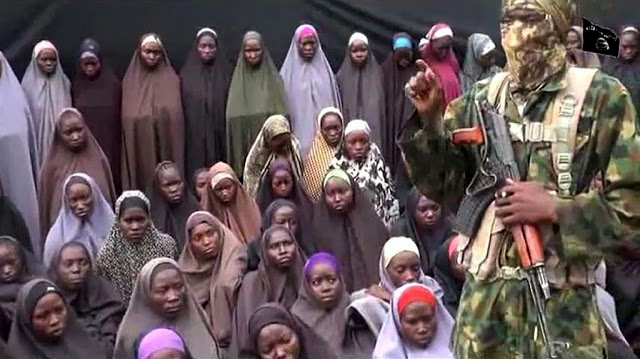
“We were in the mosque and about to start evening prayers when we heard gunshots. We rushed out and ran towards the gate. It was closed,” she told AFP.
“Out of panic, some climbed the fence to waiting vehicles outside and just jumped in, not knowing whose vehicles they were…
“We have not heard from those who entered the vehicles outside the school. We have the feeling they were taken by the gunmen.”
Nigeria’s President Muhammadu Buhari announced after a weekly cabinet meeting that a government delegation led by the defence and foreign ministers will visit Dapchi on Thursday.
“I have directed the military and police to mobilise immediately to ensure that all the missing girls… are found,” he added.
– Weapon of war –
Boko Haram has seized thousands of women and young girls, as well as men and boys of fighting age during the conflict, which has left at least 20,000 dead since 2009.
They include some 300 children who were among 500 people abducted from the town of Damasak in November 2014.
Getting accurate information from the remote northeast remains difficult. The army still largely controls access and infrastructure has been devastated by the conflict.
In 2014, the military initially claimed the Chibok students had all been found but was forced to backtrack when parents and the school principal said otherwise.
As the issue gained world attention, via the hashtag #BringBackOurGirls, the then president Goodluck Jonathan was criticised for his lacklustre response.
Jonathan’s handling of it was seen as contributing to his 2015 election defeat to Buhari, who promised to bring the Boko Haram insurgency to an end.
But despite Buhari’s repeated claims the group is weakened to the point of defeat, civilians remain vulnerable to suicide attacks and hit-and-run raids.
The attack in Dapchi will again raise questions about the government’s grip on security.
Security analysts told AFP on Tuesday that government ransom payments to secure the release of the Chibok girls could have given the under-pressure group an incentive for financing.
“They need money for arms, ammunitions, vehicles, to keep their army of fighters moving across the borders,” said Amaechi Nwokolo, from the Roman Institute of International Studies.
“They’re spending a lot of money on arms and logistics.”
 The Independent Uganda: You get the Truth we Pay the Price
The Independent Uganda: You get the Truth we Pay the Price





